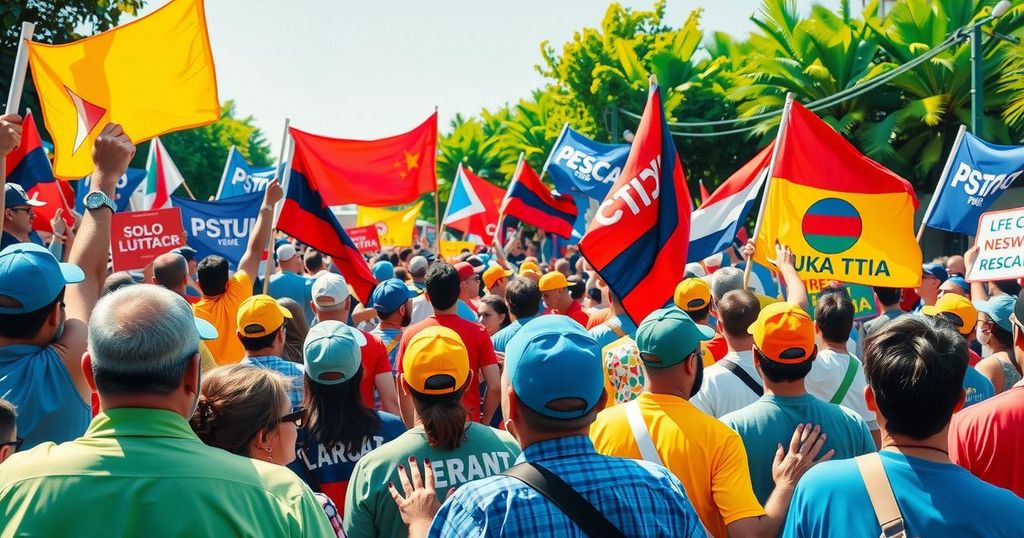Colombia’s President Gustavo Petro calls for a special election to address stalled labor and health reforms, encouraging citizens to oppose contrary political forces. A rally at Bolivar Square aimed to gain support for this initiative. Critics suggest the government faces hurdles in mobilizing voters for participation while promoting significant systemic changes, including health and labor proposals.
Colombia’s President Gustavo Petro has called for a special election to address stalled labor and health reforms, urging citizens to resist centrist and right-wing politicians. This announcement came during a rally organized by labor unions, where Petro proposed a plebiscite that would allow voters to approve or reject significant legislation that has seen little progress in Congress.
Petro criticized congressional members opposing the reforms, stating that “the people have made lots of sacrifices to be governed now by monarchs and tyrants.” He emphasized that their resistance stems from greed and corruption. As the nation’s first leftist president, Petro faces challenges in the Senate, where his political party holds only a small fraction of seats.
To bolster support for the special election, Petro granted national government workers a day off to participate in protests. Thousands gathered in Bogota’s Bolivar Square to advocate for the election. During this event, Petro called for punishment against lawmakers prioritizing corporate interests over public well-being.
The proposed election, referred to as a popular consultation, requires Senate approval and mandates at least one-third voter participation to be valid, which amounts to about 13 million participants. Political analysts express skepticism regarding the administration’s ability to mobilize enough voters, noting that Petro secured 11.2 million votes in his previous election.
Despite these challenges, some analysts suggest that the special election may energize Petro’s supporters ahead of the congressional elections slated for March. The government can utilize public funds to campaign for its initiatives effectively, aiming to rectify its failure to garner congressional consensus.
Petro’s reform proposals include overhauling the health system by eliminating insurance companies that manage obligatory social security payments while establishing a governmental body to manage these funds. He asserts that these private companies have mishandled substantial financial resources. However, lawmakers remain skeptical, fearing that the reforms would grant excessive authority to government officials and questioning the government’s capacity to handle patient care.
Proposed labor reforms by Petro intend to enhance compensation for night workers and impose stricter regulations on short-term contracts. However, critics argue that these reforms may lead to higher unemployment rates by incentivizing companies to reduce hiring costs. With over 55% of Colombians employed in the informal economy, opponents contend that these reforms lack incentives for businesses to incorporate informal workers into formal contracts.
In summary, President Gustavo Petro is advocating for a special election to provide a platform for labor and health reforms that have faced significant opposition in Congress. His call to action targets the systemic challenges posed by the political landscape, with hopes to energize supporters amidst skepticism regarding voter turnout. The proposed reforms aim to reshape Colombia’s health system and labor laws but encounter resistance from legislators concerned about government oversight and economic implications.
Original Source: www.mymotherlode.com






